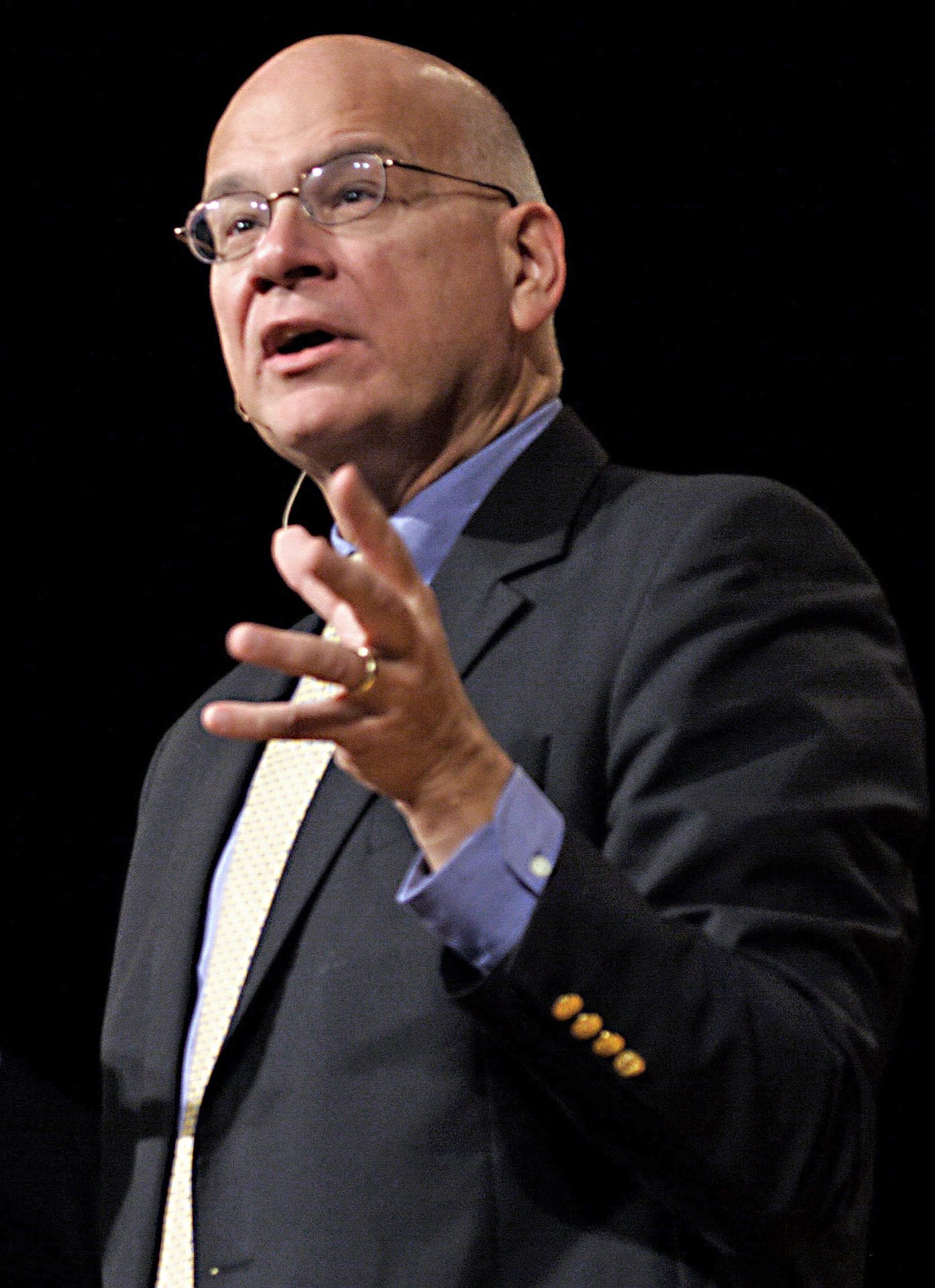Exploring The Life And Legacy Of Tim Keller: Insights And Inspiration
Known for his ability to bridge the gap between faith and reason, Keller’s teachings have resonated with millions around the globe. As the founding pastor of Redeemer Presbyterian Church in New York City, he transformed a small congregation into a thriving community that has inspired countless others. His approach to addressing cultural and intellectual challenges with grace and wisdom has made him a trusted voice in both religious and secular circles. Beyond his pastoral work, Tim Keller is celebrated for his books, which tackle complex spiritual and philosophical questions with clarity and depth. Titles like *The Reason for God* and *Counterfeit Gods* have become bestsellers, offering readers practical insights into living a meaningful life rooted in faith. Keller’s influence extends beyond the pulpit and the written word; he has been a prominent figure in discussions about faith in urban settings, the role of religion in modern society, and how to engage skeptics with empathy and understanding. His legacy is not just one of religious leadership but also of intellectual rigor and cultural relevance. In this article, we delve into the life, work, and enduring impact of Tim Keller. From his early years and personal details to his groundbreaking contributions to theology and ministry, we’ll explore what makes him such a pivotal figure. Whether you’re familiar with his work or just discovering him, this comprehensive guide will provide valuable insights and inspiration. Let’s begin by examining his biography and the foundational moments that shaped his journey.
Table of Contents
- Biography of Tim Keller
- Personal Details and Bio Data
- What Makes Tim Keller's Ministry Unique?
- How Did Tim Keller Impact Modern Christianity?
- Key Teachings and Philosophies
- What Can We Learn from Tim Keller's Approach to Ministry?
- Tim Keller's Legacy: How Will He Be Remembered?
- Frequently Asked Questions About Tim Keller
Biography of Tim Keller
Timothy J. Keller was born on September 23, 1950, in Allentown, Pennsylvania. Growing up in a Christian household, Keller developed an early interest in theology and ministry. After completing his undergraduate studies at Bucknell University, he pursued a Master of Divinity degree from Gordon-Conwell Theological Seminary. Later, he earned a Doctor of Ministry degree from Westminster Theological Seminary, further solidifying his academic foundation in theology. Keller’s pastoral career began in Virginia, where he served as an associate pastor before moving to New York City in 1989. It was here that he founded Redeemer Presbyterian Church, which started with just a handful of members but grew to attract thousands of attendees weekly. His innovative approach to urban ministry, combined with his intellectual engagement with culture, made Redeemer a model for churches worldwide. Over the years, Keller became a sought-after speaker and writer, addressing topics ranging from apologetics to cultural engagement.
Personal Details and Bio Data
| Full Name | Timothy J. Keller |
|---|---|
| Date of Birth | September 23, 1950 |
| Place of Birth | Allentown, Pennsylvania, USA |
| Education | Bucknell University, Gordon-Conwell Theological Seminary, Westminster Theological Seminary |
| Profession | Pastor, Theologian, Author |
| Notable Works | The Reason for God, Counterfeit Gods, The Prodigal God |
What Makes Tim Keller's Ministry Unique?
Tim Keller’s ministry stands out for its intellectual rigor and cultural sensitivity. Unlike many traditional pastors, Keller has consistently engaged with skeptics and non-believers, addressing their doubts with empathy and reason. His ability to articulate complex theological concepts in accessible language has made his teachings appealing to a wide audience. For instance, his emphasis on "cultural apologetics" encourages Christians to understand and engage with the intellectual and cultural trends of their time. Another hallmark of Keller’s ministry is his focus on urban settings. He recognized early on that cities are often neglected by traditional church outreach efforts, despite being hubs of influence and diversity. By establishing Redeemer Presbyterian Church in New York City, Keller demonstrated how faith communities could thrive in bustling, cosmopolitan environments. His model of ministry has since inspired countless urban churches worldwide.
Read also:Kylie Page Unveiling The Life And Journey Of A Rising Star
How Did Tim Keller Impact Modern Christianity?
Tim Keller’s influence on modern Christianity is both profound and multifaceted. Through his writings and teachings, he has reshaped how Christians engage with contemporary culture. One of his most significant contributions is his emphasis on apologetics—the defense of faith. In an era marked by skepticism and secularism, Keller has equipped believers with tools to address intellectual objections to Christianity while remaining respectful and empathetic. Moreover, Keller’s work has helped bridge the gap between faith and reason. He often highlights how Christianity provides answers to life’s deepest questions, from the problem of suffering to the search for meaning. His books, such as *The Reason for God*, have become essential reading for those exploring the intersection of faith and philosophy. By presenting Christianity as intellectually credible and emotionally satisfying, Keller has attracted not only believers but also curious skeptics.
Key Teachings and Philosophies
Tim Keller’s teachings are characterized by their depth, clarity, and relevance to modern life. Two of his most influential works, *The Reason for God* and *Counterfeit Gods*, encapsulate his approach to addressing both intellectual and spiritual challenges.
The Reason for God: Bridging Faith and Doubt
In *The Reason for God*, Keller tackles some of the most common objections to Christianity, such as the exclusivity of Christ and the problem of evil. Rather than dismissing these questions, he engages with them thoughtfully, offering reasoned responses that appeal to both the mind and the heart. For example, he argues that the Christian narrative provides a coherent explanation for suffering, pointing to the cross as a demonstration of God’s solidarity with humanity.
Counterfeit Gods: Unpacking Modern Idolatry
*Counterfeit Gods* explores the concept of idolatry in the modern world. Keller explains how people often substitute God with lesser things—such as success, relationships, or material wealth—leading to dissatisfaction and brokenness. By identifying these "false gods," Keller encourages readers to reorient their lives around true worship and purpose. His insights are particularly relevant in today’s consumer-driven culture, where distractions abound.
What Can We Learn from Tim Keller's Approach to Ministry?
Tim Keller’s approach to ministry offers valuable lessons for both religious leaders and laypeople. One key takeaway is the importance of intellectual engagement. In a world where faith is often dismissed as irrational, Keller demonstrates that Christianity can stand up to scrutiny. By equipping believers with thoughtful responses to skepticism, he empowers them to engage confidently in conversations about faith. Another lesson is the value of cultural relevance. Keller’s success in urban ministry shows that churches can thrive in diverse, fast-paced environments by addressing the unique needs of their communities. His emphasis on contextualization—adapting the message of the gospel to resonate with different audiences—has inspired countless pastors to rethink their outreach strategies.
Tim Keller's Legacy: How Will He Be Remembered?
Tim Keller’s legacy is one of profound impact and lasting influence. He will be remembered not only as a pastor and theologian but also as a bridge-builder who brought faith and reason into dialogue. His writings and teachings continue to inspire new generations of believers and skeptics alike, offering a vision of Christianity that is both intellectually robust and deeply compassionate. Beyond his individual achievements, Keller’s work has had a ripple effect, influencing the broader landscape of modern Christianity. Through organizations like Redeemer City to City, he has helped plant hundreds of churches worldwide, extending his vision of gospel-centered ministry to new contexts. His commitment to fostering thoughtful faith in an increasingly secular world ensures that his legacy will endure for years to come.
Read also:Discover The Enchanting World Of Cassandra Rose A Journey Into Artistry And Creativity
Frequently Asked Questions About Tim Keller
What Are Tim Keller’s Most Popular Books?
Some of Tim Keller’s most popular books include *The Reason for God*, *Counterfeit Gods*, and *The Prodigal God*. These works explore themes of faith, doubt, idolatry, and redemption, offering readers practical insights into living a meaningful life rooted in Christianity.
How Did Tim Keller Influence Urban Ministry?
Tim Keller revolutionized urban ministry by demonstrating how churches could thrive in diverse, fast-paced environments. His work at Redeemer Presbyterian Church in New York City became a model for gospel-centered ministry in cities worldwide.
What Is Tim Keller’s Approach to Apologetics?
Tim Keller’s approach to apologetics emphasizes engaging with skeptics respectfully and thoughtfully. He addresses intellectual objections to Christianity while highlighting the emotional and existential dimensions of faith, making his arguments both compelling and accessible.
For further reading on Tim Keller’s life and work, you can explore his official website here.
Understanding The Meaning Of "Murder Twink": A Comprehensive Guide
Understanding The Concept Of "Ass Getting Clapped": A Comprehensive Guide
Exploring The Trend: Naughty Teacher UK And Its Impact On Modern Education

About Tim Keller

Criação, Evolução e Cristãos Leigos Tim Keller Parte 4 ABC²